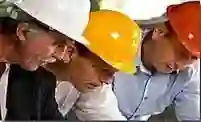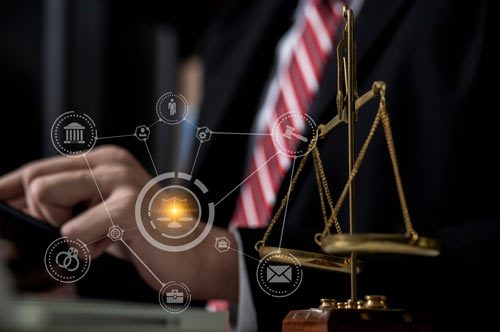In the vast realm of engineering, the state of Illinois stands as a guardian of professional standards, with a set of statutes and rules meticulously crafted to govern the conduct of engineers. This article delves into the intricacies of these regulations, exploring their historical context, impact on engineering practices, and the challenges faced by professionals. Let’s embark on a journey through the landscape of Illinois engineering statutes.
I. Introduction
Definition of Professional Engineering
Professional engineering involves the application of scientific principles to design, build, and maintain structures, devices, and systems. In Illinois, individuals engaging in such practices are bound by a set of regulations aimed at ensuring competence, integrity, and public safety.
Importance of Regulations in Engineering
Regulations serve as the backbone of any profession, providing a framework for ethical conduct and standardizing practices. In the field of engineering, adherence to rules is paramount to maintain public trust and uphold the integrity of the profession.
II. Historical Context
Evolution of Engineering Standards
The evolution of engineering standards in Illinois mirrors the advancements in the industry. From rudimentary guidelines to comprehensive statutes, the state has adapted to the changing landscape of engineering, aligning its regulations with the best practices of the time.
Significance of Regulations in Illinois
Illinois boasts a long-standing commitment to engineering excellence, and this commitment is reflected in its stringent regulations. These rules not only safeguard the interests of the public but also foster a culture of continuous improvement within the engineering community.
III. Overview of Illinois Statutes
Licensing Requirements
To practice engineering in Illinois, individuals must meet specific licensing requirements. These requirements ensure that only qualified professionals, with the necessary education and experience, are entrusted with projects that impact public safety.
Professional Engineering Code of Ethics
The Professional Engineering Code of Ethics outlines the principles that engineers in Illinois must uphold. From honesty and integrity to prioritizing public welfare, these ethical guidelines form the bedrock of the profession.
Continuing Education Obligations
Recognizing the dynamic nature of the engineering field, Illinois mandates ongoing professional development. Engineers must engage in continuous learning to stay abreast of technological advancements and evolving best practices.
IV. Key Rules for Professional Engineers
Standards of Practice
Engineers in Illinois are held to high standards of practice, ensuring that their work meets the criteria of professionalism and competence. These standards encompass design, analysis, and implementation, leaving no room for subpar performance.
Disciplinary Actions
In the event of professional misconduct, Illinois engineering regulations outline disciplinary actions. These actions range from fines and probation to the revocation of licenses, underscoring the seriousness with which the state approaches breaches of professional conduct.
Code of Professional Conduct
Engineers are not only technically proficient but are also expected to conduct themselves in a manner that upholds the dignity of the profession. The Code of Professional Conduct outlines the behavioral expectations, emphasizing the responsibility of engineers to society.
V. How Regulations Impact Engineering Practices
Ensuring Public Safety
The primary goal of engineering regulations in Illinois is to safeguard the public. By enforcing standards of practice and ethical conduct, the state ensures that engineering projects prioritize safety and well-being.
Upholding Professional Standards
Regulations act as a compass, guiding engineers toward excellence. By setting benchmarks for competence and ethical behavior, Illinois fosters a community of professionals committed to delivering quality work.
Encouraging Innovation
Contrary to stifling creativity, regulations in Illinois are designed to channel innovation responsibly. Engineers are encouraged to explore new ideas within the boundaries of ethical and professional standards, fostering a culture of progress.
VI. Challenges Faced by Professional Engineers in Illinois
Compliance Complexities
Navigating the intricate web of regulations can be challenging for engineers. From licensing requirements to ethical guidelines, staying compliant requires a thorough understanding of the legal landscape.
Navigating Legal Obligations
The legal aspects of engineering can be daunting. Engineers must not only be proficient in their technical domains but also possess a keen awareness of legal obligations to avoid potential pitfalls.
Staying Updated on Changes
In a rapidly evolving field, keeping abreast of regulatory changes is crucial. Engineers in Illinois face the challenge of staying informed about amendments to statutes and rules that may impact their practice.
VII. Tips for Adhering to Illinois Engineering Rules
Regularly Reviewing Regulations
Engineers can stay ahead of compliance challenges by regularly reviewing and updating their knowledge of Illinois engineering regulations. This proactive approach ensures that professionals are well-informed about any changes that may affect their work.
Seeking Legal Counsel
Given the complexities of legal obligations, seeking legal counsel can provide clarity and guidance. Consulting with professionals well-versed in engineering regulations can help engineers navigate legal nuances.
Participating in Professional Organizations
Engaging with professional organizations not only fosters a sense of community among engineers but also provides a platform for staying informed. These organizations often offer resources and events that enhance professionals’ understanding of regulatory developments.
VIII. Case Studies
Real-world Examples of Regulation Impact
Examining real-world cases where engineering regulations played a pivotal role provides valuable insights. Case studies showcase the tangible effects of adherence or non-compliance with the rules, offering lessons for all professionals.
Lessons Learned from Legal Cases
Learning from the experiences of others is a wise strategy. By delving into legal cases related to engineering, professionals can glean lessons and best practices to enhance their own adherence to regulations.
IX. Future Trends in Engineering Regulations
Technological Advancements
As technology continues to advance, engineering regulations must adapt. The article explores how emerging technologies impact the regulatory landscape and what engineers can anticipate in the future.
Adaptations to Global Standards
In an interconnected world, Illinois engineers may find themselves working on projects with global implications. Understanding how local regulations align with or diverge from international standards is crucial for success.
Anticipated Legislative Changes
The legislative landscape is dynamic, and anticipating changes in engineering regulations is essential. By staying informed about potential legislative shifts, professionals can prepare for compliance adjustments in the future.
X. Conclusion
Recap of the Importance of Adhering to Regulations
In conclusion, adherence to Illinois statutes and rules is not just a legal obligation but a commitment to excellence. Engineers play a crucial role in society, and by upholding these regulations, they contribute to the advancement and safety of the community.
Encouragement for Continuous Learning and Compliance
As the engineering landscape evolves, professionals must embrace a culture of continuous learning and compliance. By doing so, they not only safeguard their careers but also contribute to the overall progress and reputation of the engineering profession in Illinois.
Frequently Asked Questions
- How can I ensure compliance with Illinois engineering regulations?
Engage in regular reviews of the statutes, participate in professional organizations, and seek legal counsel for guidance. - What are the consequences of non-compliance with engineering regulations in Illinois?
Non-compliance can result in disciplinary actions, ranging from fines to the revocation of licenses. - Are there upcoming changes to Illinois engineering regulations?
Stay informed about potential legislative changes to adapt your practices accordingly. - How do engineering regulations in Illinois impact innovation?
Regulations are designed to encourage responsible innovation within ethical and professional boundaries. - Where can I get access to additional resources on Illinois engineering regulations?
Explore further resources and stay updated by visiting https://idfpr.illinois.gov/profs/profengineer.html.


